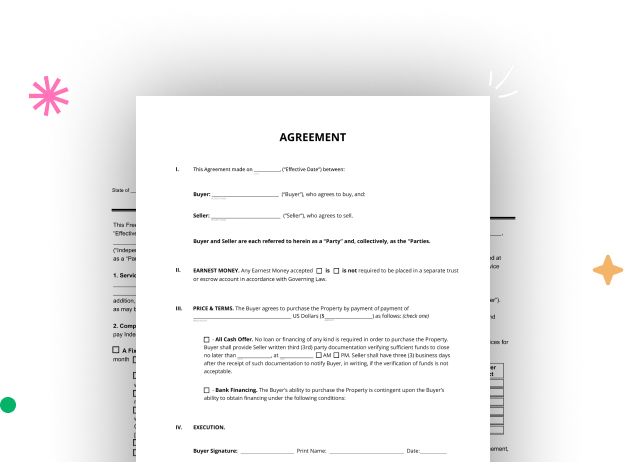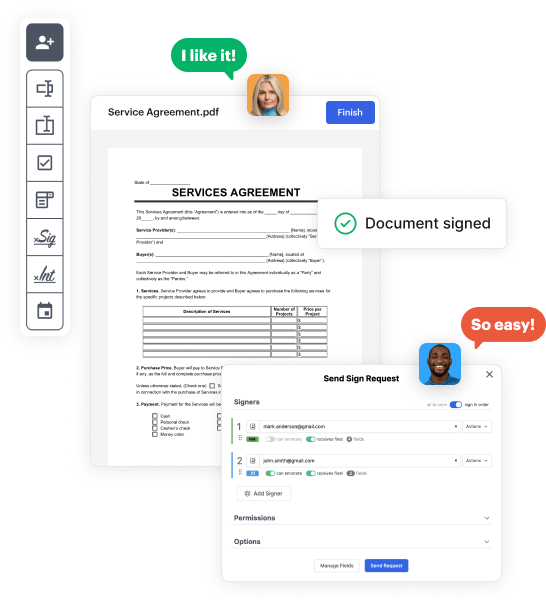

Begin by logging into your DocHub account. Explore the pro DocHub functionality at no cost for 30 days.
Once logged in, head to the DocHub dashboard. This is where you'll create your forms and handle your document workflow.
Click on New Document and choose Create Blank Document to be redirected to the form builder.
Use the DocHub tools to insert and configure form fields like text areas, signature boxes, images, and others to your document.
Include needed text, such as questions or instructions, using the text tool to guide the users in your document.
Modify the properties of each field, such as making them compulsory or arranging them according to the data you expect to collect. Assign recipients if applicable.
After you’ve managed to design the New Jersey Landlord Tenant Law, make a final review of your document. Then, save the form within DocHub, transfer it to your chosen location, or share it via a link or email.